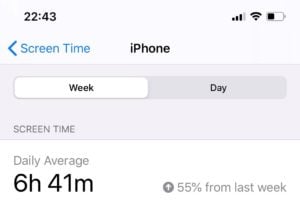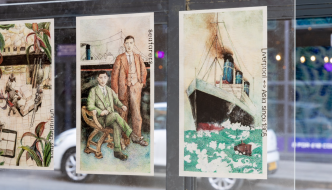
Aside from pulling down the pants of healthcare systems and economies across the world, COVID-19 has thrown unexpected parts of society into a refreshing light. Take, for instance, the number of people successfully working from home during this crisis, calling into question the work-til-you-drop philosophy of so many modern office employees and the necessity of expensive, soul-destroying commutes. Or the number of grown-ups coming to terms with how hard teaching is, now that they themselves have had to attempt it for a few days in their living rooms.
One thing we’ve seen benefit from the pandemic is social media. When you think that just weeks ago, a series of tragic celebrity deaths had thrown social media into another pit of public hate, it is remarkable how much we are depending on this weird, shape-shifting enigma of technology.
This is not to undermine the death toll and economic devastation caused by the coronavirus spread. I would never suggest that anything good going on right now could possibly outweigh the living-hell happening for so many people across the world. In such dark times however, any societal development that’s at all optimistic or interesting should not be ignored, if even just to distract us from relentless bad news.
Distraction is one way that social media has proved its value during this crisis. With a news cycle constantly updating us of the virus’ impact and the increasing severity of its threat, light and entertaining trends on social media provide crucial comic relief for the world. From TikTok to Twitter, creative and quality content is popping up everywhere to give users, regardless of their lifestyles or interests, something to laugh at. Whether it’s a Hollywood actor or your childhood friend, everyone is getting involved and making the most of the hilarious escape social media can be.
Our ability to see what everyone is up to has never been more valuable. As well as being reassured of their safety, people feel comfortingly connected to their friends and family through social media and communicate better because of it. Using Facebook messenger to video call people or simply having a quick DM exchange allows those separated by any distance to catch up in some capacity. The meteoric, potentially temporary rise of the Houseparty app allows big groups to hang out virtually and have something resembling what used to be called “fun” with all their friends in one place: on their phone screen. When all the company you can have is within the confines of your home, the interfacing possibilities of social media has proved vital for relationships and wellbeing.

Credit: Edward Jenner, www.pexels.com/photo/man-having-a-video-call-on-his-phone-4031820/
Beyond keeping our own personal worlds connected, social media is also allowing us to stay constantly updated on the state of the planet and its scattered population. The impact of COVID-19 can be easily tracked through news feeds on apps. We can see immediately when it hits parts of the world, from recovering Wuhan to the emerging victim America, and what governments or citizens do in response. The Prime Minister’s decision to announce his contraction of the virus through a video on his Twitter account shows what a priority social media has become for information sharing. Thanks to social media, news is passed on exponentially – someone sees it on their timeline, then shares the link, tags a friend in the comment, or tells someone else directly – so it spreads further and faster. In this way, it mirrors the movement of the globally spreading virus, and is the best way for information to fight it.
Running alongside the coronavirus coverage on social media – which can be depressing at best – is a huge amount of positive messaging. Inspiring examples of community support and virus survival stories balance out the sombre tone of COVID-19 news. Lines like ‘we can get through this’ and ‘the world must work together’ appear in post after post, hoping followers feel comforted in this solidarity. Footage of street-wide applause for the NHS has warmed hearts, having started as a hashtag to show support for health workers. Through the simple #StayHomeSavesLives, the government has managed to encourage social distancing more effectively than if it had plastered messages on the sides of the buses that no one is taking. Positivity is on every platform and is making your social media feed one of the nicest places to be.
The global crisis has even made heroes out of the least trusted, most influential forces in society: the social media companies themselves. From early on, Facebook, Twitter et al have tried to suppress misleading or exploitative content about COVID-19. The tech giants have taken it upon themselves to tackle the spread of any information or news that might undermine people’s understanding of the virus, or even their health. After years of increased scrutiny for not moderating misinformation, these firms are now trying to seize their moment of redemption, pushing out science and facts about the virus and blocking fake treatments or face mask sellers. It might be a tap in, but their responses to coronavirus have shown that even these firms can do the right thing sometimes.

Credit: Erik Mclean, https://unsplash.com/photos/Qv2QUwFmiL0
It should not be forgotten that those not feeling the advantages of social media are likely to be those most negatively affected by the pandemic. The elderly, many of whom will be suffering loneliness on an augmented level to normal, probably won’t be drawing themselves on Instagram given only 44% of retired Britons feel confident with the internet. Although the bubble world that social media builds for each of us has never felt so necessary, we should not forget those outside of it. It should remind us even more of how extreme a form of isolation some people, without the sanctuary of smartphones, are experiencing right now.
The virus and lockdown that are changing our lives have proven that social networks still work. Despite all the trolling, the data mining, the election swinging, the radicalisation and the countless other mistakes it’s made, social media has found its place back at the forefront of our hearts – apparently when they’re at their most panic-stricken. For the past decade, people have wondered what the perfect world would look like in which social media coexists with humanity without causing it so much harm. Well, now you’re looking at it.
We might be socially distant, but virtually we’ve never been closer.
Filed under: Film, TV & Tech
Tagged with: app, community, coronavirus, covid19, Facebook, instagram, isolation, smartphone, social distancing, social media, technology, Twitter



Comments